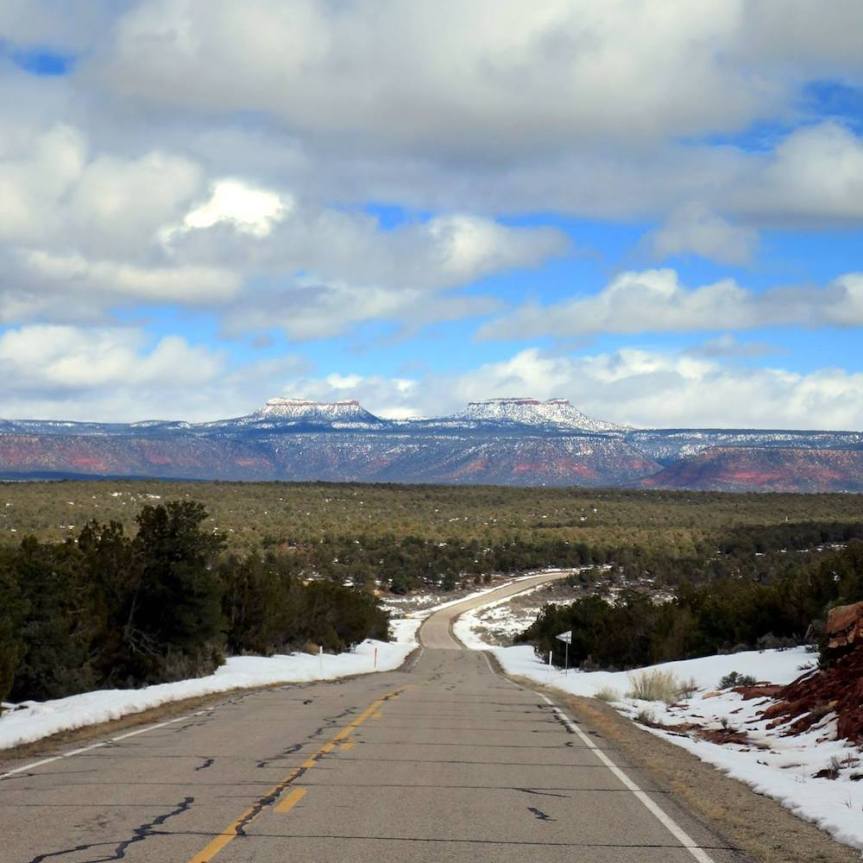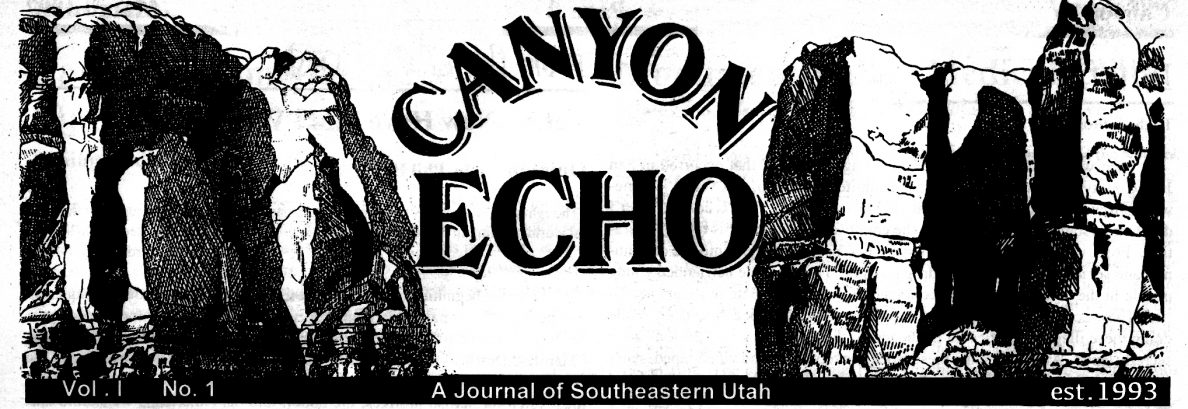
By Zak Podmore
Published: 3/6/19
San Juan County’s first Democrat- and Navajo-led commission is continuing to make waves by voicing its support for Bears Ears National Monument.
On Tuesday, Commissioners Willie Grayeyes and Kenneth Maryboy voted to pass a resolution in support of the Bears Ears Expansion and Respect for Sovereignty Act, which was reintroduced by Rep. Deb Haaland, D-New Mexico, and Rep. Ruben Gallego, D-Arizona, in January. The bill is currently in the U.S. House of Representatives and would create a 1.9 million-acre Bears Ears National Monument as was originally proposed by the Bears Ears Inter-Tribal Coalition in 2015.
President Barack Obama created a 1.35 million-acre Bears Ears National Monument in 2016 after cutting out areas from the tribal proposal that had the highest potential for mineral development. President Donald Trump subsequently reduced the monument by 85 percent in 2017, citing local opposition to the monument to justify the cuts. But since Maryboy and Grayeyes, both pro-Bears Ears activists, took office in early 2019, they’ve moved quickly to reverse the county’s official position on the monument.
In February, the two Democrats voted to withdraw the county from a lawsuit initiated by the previous, Republican-led commission, which sought to intervene on behalf of the Trump administration and to support the reduced Bears Ears. Commissioner Bruce Adams, a Republican, voted against all three pro-monument resolutions that have come before the commission this year.
[RELATED: Monumental Shift in San Juan County’s Official Stance on Bears Ears]
In addition to increasing the size of the monument, the Bears Ears Expansion and Respect for Sovereignty Act would, according to Haaland’s office, “restore tribal consultation by requiring federal land managers to use tribal expertise to manage the monument’s lands and protect over 100,000 archaeological and cultural sites in the area.”
Obama’s proclamation included seats for tribal leaders on a monument management commission, including a representative appointed by the Hopi Nation, Navajo Nation, Ute Mountain Ute Tribe, Ute Indian Tribe of the Uintah Ouray, and Zuni Pueblo. Critics say tribal representation was significantly reduced when Trump reformed the management commission in 2017.
When the act was reintroduced this year, it drew praise from the tribal governments that participate in the inter-tribal coalition. “The Navajo Nation appreciates the efforts of Representatives Gallego and Haaland to restore our tribal voices on the Bears Ears landscape and to lend our vision to the land’s management,” the Navajo Nation said in a statement.
The Hopi Tribe added, “The Hopi Tribe appreciates Representatives Gallego and Haaland’s efforts to protect the sacred landscape that is Bears Ears. It is encouraging to see Congress working towards safeguarding our most cherished landscapes instead of dismantling them.”
Haaland (along with Rep. Sharice Davids, D-Kansas) became the first Native American woman elected to Congress in November. The Bears Ears Expansion Act is unlikely to pass in the Republican-controlled Senate if it makes it out of the House.
Several members of the public spoke against the resolution to endorse the act at the commission meeting in Monticello.
An exchange between county resident Kim Henderson and Maryboy grew heated when Henderson demanded to know who wrote the resolutions before the commission. Maryboy said that information would be available through the county administrator, and when Henderson pressed him further, he responded, “As Native Americans, right now you’re saying you’re too dumb to write the resolutions.”
Henderson denied that was the intention of her statement and said the question of who wrote the resolutions was “simple” and the public deserved an answer.
Suzette Morris asked for Navajo language translators to be present at commission meetings.
Blanding Mayor Joe Lyman said that Blanding no longer has representation on the commission after a racial gerrymandering lawsuit under the Voting Rights Act split Blanding into two commission districts in 2017 and led to the election of Maryboy and Grayeyes. Lyman spoke out against a resolution to limit county employees’ ability to speak on behalf of the county, which later failed to pass.
The commissioners considered six other resolutions at the meeting. Maryboy and Grayeyes outvoted Adams to pass the Bears Ears resolution and a resolution that requires the livestreaming of commission meetings online. They also joined together to ask that the county administrator compile an organizational chart of all county officials and employees.
Adams and Grayeyes broke with Maryboy to vote against a resolution that would have voiced the county’s opposition to HB 93, which changes how new counties can be formed in Utah. Adams said the legislation is no longer relevant to San Juan County because it has been amended to only apply to Class I and II counties. San Juan is a Class IV county, Adams said.
A resolution related to commission procedures was tabled. During the commission work meeting, two resolutions were discussed related to energy development in San Juan County, and they will become action items at the March 19 meeting.
— The Canyon Echo is able to publish quality news coverage from southeast Utah thanks to reader support. Please consider donating today.
